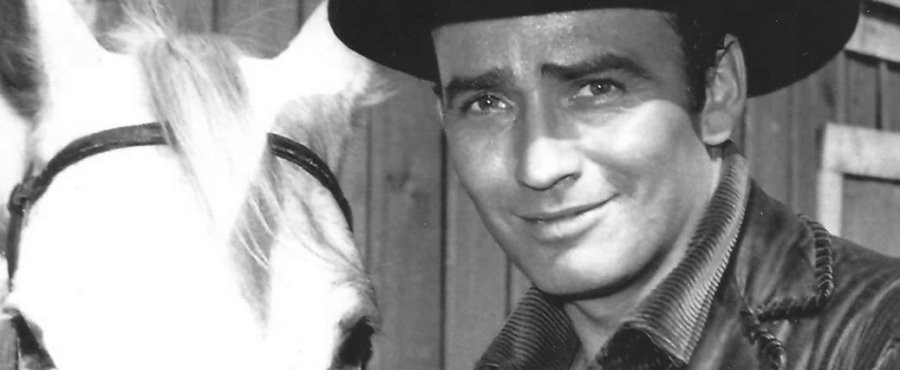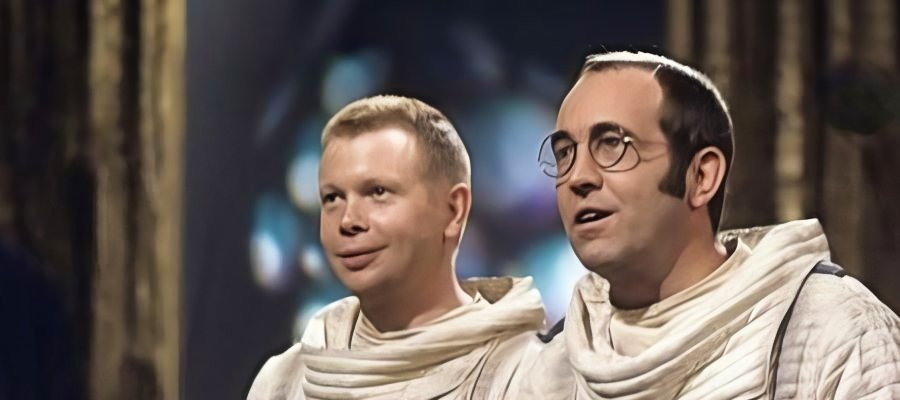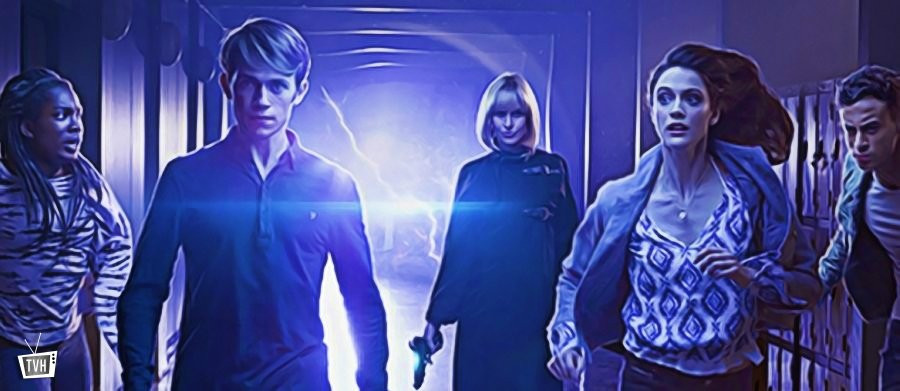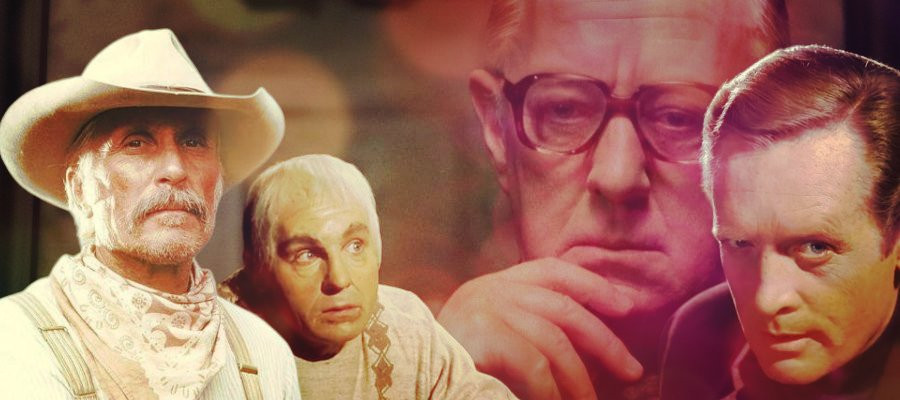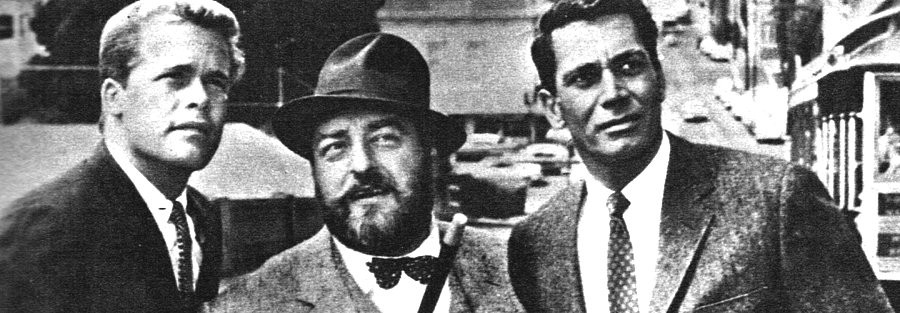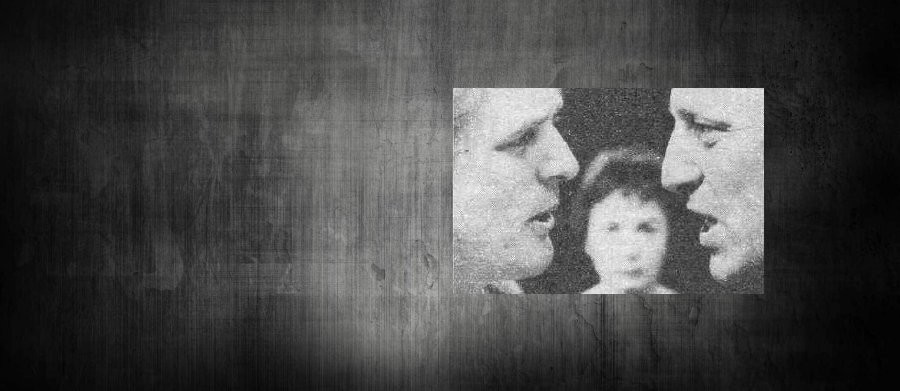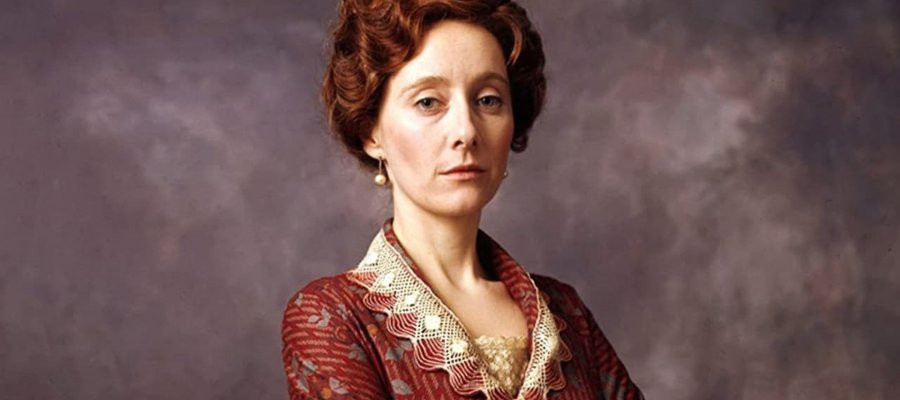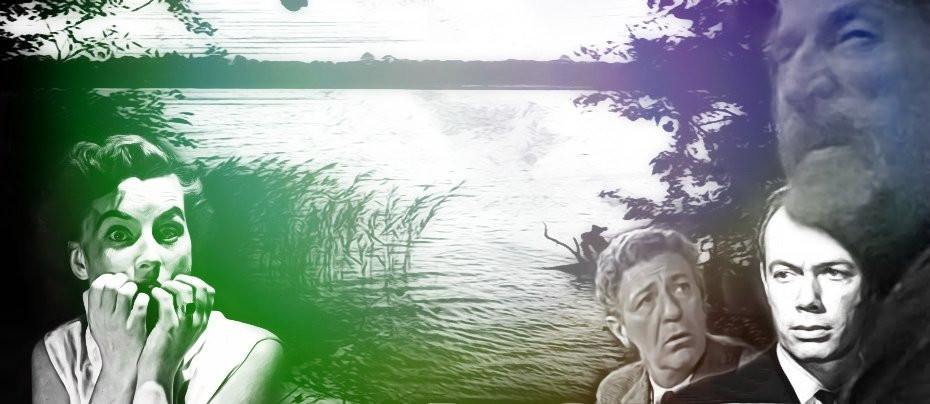
The Monsters
1962 - United KingdomAccording to popular belief, The Monsters came about after playwright Evelyn Frazer and Drama Script supervisor Vincent Tilsley, met in the canteen at Television Centre in Wood Green, London. Sitting down for lunch, Frazer and Tilsley began a conversation about the previous night’s Panorama feature on the Loch Ness Monster. By the time they had finished eating, they had worked out a story and fleshed out a plot which they then proposed as a short, four-part science fiction series. However, rather than a chance meeting there is evidence to suggest that this was a commission by the BBC who, at that time, were looking to further develop a new series with the audience pleasing potential of the sci-fi genre with which they had already enjoyed great success. In particular with Quatermass (over a five-year period), A for Andromeda and their stunning adaptation of George Orwell's Nineteen Eighty Four.

The plot for The Monsters is as follows: It was in 1942 that Wilf Marner first saw the monster of Lake Kingswater. He was on Home Guard patrol at the time, and when he tried to report it, they nearly put him inside for being drunk on duty. Now, after ten years, Wilf has seen it again. "And so have other folk, if they'd admit it. They're feared of being laughed at". But one man isn't laughing: John Brent (William Green), Professor of Zoology, on honeymoon with his wife Felicity (Elizabeth Weaver) at the lakeside hotel. He knows that for centuries there have been stories of some strange creature in the lake, and he begins to wonder … can there possibly be a connection between whatever it is out there, and the body of a government agent found floating in the water having been attacked by what on the face of it appears to have been a large and savage creature?

Brent is keener than ever to unravel the lake's legendary secrets. But the arrival of the dead man's sister, Esmee Pulford (Helen Lindsay), brings a different kind of problem for him and his wife. The couple then become involved with a bizarre scientist – Professor Cato (Robert Harris) and soon find out that he is using a miniature submarine to make people believe there are monsters in the lake. But if the sub was used just to make the police think there was a "monster" in the lake, what went wrong that resulted in the man’s death? Do the monsters really exist after all? Brent's quest for the monsters soon seems absurdly unimportant compared with what he discovers about Cato. The Brent's finally discover that the lake does indeed contain prehistoric denizens who rise from the lake to terrorise the local community. But the fate of the dinosaurs seems irrelevant when the fate of mankind is in the balance. Yet in an astounding manner the survival of man is vitally affected by the survival of the monsters.
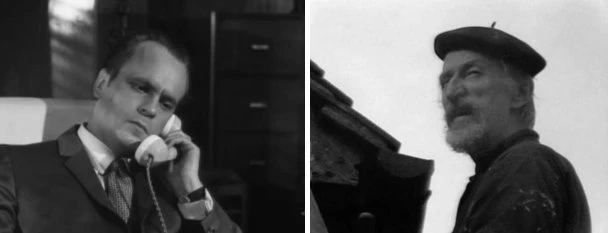
The Monsters was shown on BBC on Thursdays, commencing at 8pm on 8 November 1962. The series was produced by George R. Foa (whose long experience with BBC Television included thirty-eight productions of opera) with Stewart Marshall and Bernard Wilkie supplying the special effects. Director was Mervyn Pinfield who, a year later, would become Associate Producer on Doctor Who as a direct result of having worked on this short science fiction series. Also in the cast were Philip Madoc, Marc Dignam and George Pravda.
As there are no copies available to view (the only clip in existence being a short piece from Points of View) it is interesting to read a contemporary review from November 1962 by the television critic in The Stage newspaper who wrote of the first two episodes:
The real snag about BBC's new serial is the incredibly involved plot that runs together prehistoric monsters, psychometry, and cold-war scientific jiggery-pokery. With so many ideas floating about at once it's difficult to clear a line of thought.
The coincidental meeting up of so many friends at the place is also stretching credulity a bit far. And to mount the episodes - two down, two to go - in a three quarter hour format is trying the patience of the viewer.
A far better plan would have been to cut the plot down to its bare essentials with international scientists making horrible weapons as (its) sole theme.
The honeymoon couple - play by William Greene and Elizabeth Weaver - add the flavour of the old steam radio Paul Temple series, not really a good thing, but not their fault. It's also a great pity that Foa, one of the top BBC producers, should be lumbered with a routine job like this.
The rest of the cast disport themselves suitably, but somehow the thing doesn't click.
Due to the critical and viewer response to The Monsters, the BBC decided that it would not have a repeat showing and subsequently, the 35mm film recordings were junked on 14 August 1963.
Seen this show? How do you rate it?
Seen this show? How do you rate it?
Published on January 2nd, 2022. Written by Laurence Marcus for Television Heaven.


